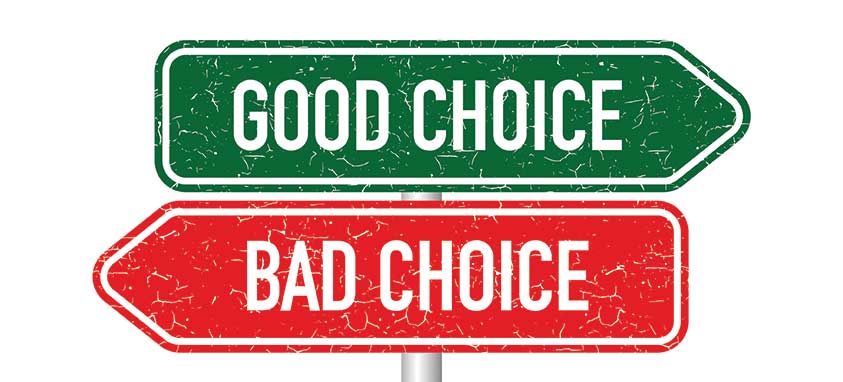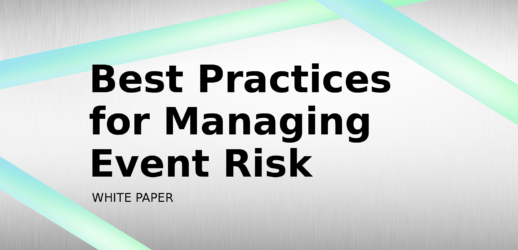To those outside the industry, the planning of meetings, events, conventions and incentive travel often seems like glamorous work. Granted, it’s an extremely interesting profession. But it’s also detail laden and mentally taxing, usually requiring long hours undertaking unglamorous travel, endless phone calls and emails, lengthy negotiations and bill reconciliations—in addition to other tedious duties.
The stress of countless hours and trying to make everyone happy has potential to push the boundaries of meeting professionals’ ethical behavior.
“Many companies have hired less-experienced planners in order to keep salaries down, but even a lot of the more-experienced planners feel overworked and perhaps underpaid,” says Joan Eisenstodt, president of Eisenstodt Associates LLC, a meetings consulting and training firm. “When people feel they’re not getting all they deserve, sometimes they rationalize taking extra perks to make up for that.”
Eisenstodt, former chair of the American Society of Association Educators (ASAE) ethics committee, says pushing the envelope of propriety in order to snare a bit of personal gain is dangerous for one’s reputation, as well as present and future employment.
“It seems like we’re near a low in our business right now, in terms of ethics,” Eisenstodt says. “While suppliers are feeding this situation with some of their perk offerings, too many planners are feeling entitled to take them.”
In any profession, lots of perks are perfectly legitimate. So it’s true that meeting planners can, in fact, enjoy some of the advantages that are unique to the job—provided they go about it the right way. Here are the three steps meeting planners should use as a framework to guide their decisions on what is proper.
Know Company Policies and Industry Standards
Paul J. Voss, president of consulting firm Ethikos, says the majority of firms have clear policies on the value of vendor gifts that can be accepted by employees, in addition to other rules designed to eliminate “moral hazard” while doing one’s job. Not only should full-time planners understand these policies as they relate to their duties, but so should other employees or contractors who plan events for the firm.
In meeting planning, moral dilemmas may exceed accepting an iPad or similar gift from a meeting facility. One problem area that arises is accepting a familiarization trip to a destination that would probably never be used for the organization’s meetings.
“People often rationalize their actions under the tenets of due diligence or the interests of the company,” Voss says.
Enjoying a three-day jaunt to experience a city’s hotels, restaurants and entertainment offerings without a potential meeting in mind would cross most companies’ ethical line. Furthermore, if such antics become known to others in the industry—and planners and suppliers do talk about those who abuse the system—then some planners might actually have a bigger problem on their hands.
“The ethics policies of the industry associations are fairly specific about the range of behaviors planners should not engage in,” Eisenstodt says. “Someone with a CMP designation could be brought before a board and stripped of their designation because of an ethical breach. Why take such a chance with your reputation and your employability?”
In short: It pays to refer to the ethics policies of industry associations in all instances where the proper course of action for a planner is not immediately clear.
Transparency is Crucial
“If your organization does not have a clearly defined policy regarding a situation you find yourself in, then you should explain the situation to your boss,” Voss says. “If a planner goes to the boss and says, ‘I know we’ve never booked this city before, but if you sign off on this fam trip I’ll know that we are at least open to the possibility.’”
Here’s another scenario: If a property gifts thousands of hotel-brand points or some merchandise to a group as a reward for booking, the planner could use such items for raffles or prizes that would benefit attendees. Then again, the planner could ask the boss if some of the points can be used personally, perhaps for an extra night on the property to catch up on sleep or to use another time.
“If the boss says OK and the organization’s policies don’t prohibit it, then it is a perk you were granted for the job you did, and you’ve been above-board about it,” Voss says.
In some cases it might be necessary to declare the value of those points as personal income for tax purposes. Regardless, failing to inform a manager of any perks or rewards that were gained from booking a meeting would be a clear ethical breach.
What Would Peers Say?
If a situation falls into a gray area regarding whether or not a particular action by the planner would be ethical, there’s another way to arrive at a decision. Voss suggests that meeting professionals consider how they would feel if their actions were posted on LinkedIn and social media and seen by co-workers or industry colleagues. If a planner would have no problem with this, then it’s most likely an appropriate course of action.
Put another way, here’s the central question: Would the action bring benefit to your organization or would it merely be taking advantage of an opportunity that brings no benefit to your organization or to the supplier?
“Sometimes it can be easy to justify unethical behavior because you work really hard or because a supplier will say, ‘This is the norm; these things happen all the time,’” Eisenstodt says. “But if you couldn’t demonstrate the value of your action to others if they heard about it, then it’s best to come down on the side of caution.”




